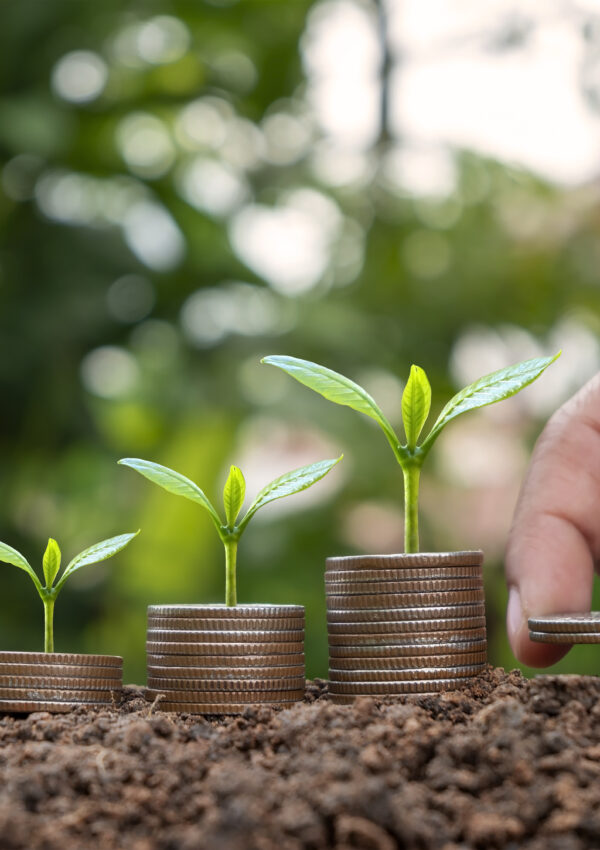Saving money is a good thing, but it can be challenging at times, especially if you’re not paying attention to where it goes. That is why utilizing personal finance apps, such as the ones listed below, is an excellent option to keep track of your finances.
They can significantly assist you in staying on top of your money and provide a rapid overview of your current situation in a couple of seconds.
What is a Personal Finance App?
A personal finance app is a mobile software that helps you manage your money. Personal finance apps are a great way to keep track of your spending and savings. They can help you to budget your money, help you to manage your debt, and set up financial goals that you want to achieve.
Some personal finance apps are even able to connect with other services such as banks, credit cards, or investment accounts in order to provide a complete view of the user’s financial situation.
There are many different personal finance apps available on the market today. However, not all of these apps are created equally. Some may have more features than others or some may be more user-friendly than others.
The 10 Best Apps for Personal Finance
The following list of personal finance apps and statistics was built using data from many sources on the web, including Mashable.com, Forbes.com, and The Balance.com.
The following are the top ten personal finance apps:
10. Mobills
Mobills performs an excellent job of consolidating all of your spending into a single, easy-to-read interface that works on both mobile and desktop.
Mobills will import your bank accounts and credit card information and offer everything to you in one place.
You can begin by establishing a budget, and Mobills will monitor your spending patterns to ensure you stay on track each month.
Mobills categorizes your expenditure, allowing you to make more informed judgments about where to cut back or identify your most expensive behaviors.
It’s quite graphic in data presentation and will present your data in easy-to-read interactive charts.
Additionally, another handy tool that most people might benefit from is the ability to add due dates and bills, which allows you to keep track of when your payments are due.
If this sounds like a personal finance software you’d like to try, you may start with the free edition and upgrade to the premium version if it meets your needs.
9. Clarity Money
The moment you add all your accounts to the app, it’ll pull in all your data and present it to you in the form of a pie chart.
The chart will give you a wealth of important information, highlighting areas you consistently overspend.
If you have many subscriptions but can’t remember which ones you have, Clarity will assist you in identifying which ones you no longer use and canceling them.
This is already a quite cool feature, but there’s more.
Clarity analyzes your spending habits and then makes additional suggestions to improve your financial status.
Additionally, the app enables users to make savings contributions and establish savings goals.
If you are concerned about the security of your money, you’ll be relieved to learn that your savings deposits are guaranteed up to $250,000.
Finally, to keep things easy, you can access a free VantageScore credit score from Experian directly within the app, which allows you to see exactly how your finances are analyzed.
8. Every Dollar
Every Dollar is the following personal finance app on our list.
This one uses a zero-based budgeting strategy, which means it assigns a purpose to every Dollar in the budget, hence the app’s name.
Like many applications on our list, every Dollar allows you to connect all your accounts and keep track of your expenses in one spot.
You can keep track of your spending, allocate expenses to several budget categories, monitor your current spending rate, and determine how much money you have leftover for the month.
Using the app on the move, you can log in to the desktop version if it is a more convenient way to manage your funds.
Another minor benefit of utilizing Every Dollar is that you can connect with a money management specialist who could assist you in achieving your financial goals.
7. Personal Capital
Personal Capital is ranked seventh on our list of personal finance applications.
If you want to manage some investments in addition to managing your day-to-day expenses, Personal Capital may be a suitable fit.
This program enables you to manage your finances and your daily spending habits.
While the software allows you to analyze your daily routines and construct a budget, its true potential is realized when it assists you in tracking and optimizing your assets.
You may track your portfolio in various ways, including asset class, account, or individual security.
Additionally, by utilizing the built-in intelligence available on the tablet edition of the app, you’ll get access to chances for diversification and risk management, as well as the opportunity to avoid any hidden fees.
This information provides an excellent opportunity for you to maintain control over all aspects of your own money.
Finally, similar to Every Dollar, the app enables you to chat with a qualified financial advisor who can discuss your objectives and create a customized financial and investment strategy for you.
6. Acorns
Acorns is a financial technology firm based in the United States that began operations in 2012 and has since assisted over 4 million people in saving and investing their money.
Essentially, this app rounds up your purchases to the nearest dollar, invests it in stocks and a variety of portfolios including ETFs, and then transfers the difference into an investment account.
It’s perfect for people who want to save but don’t have time or know-how to do so themselves.
Acorns have grown significantly since their start and now provide their customers with even more ways to manage their savings.
For instance, you can establish an IRA, engage in active investing, and obtain one of their slick new debit cards.
Their debit card enables you to spend money as usual, but all transactions are tracked in your Acorns account.
Additionally, this centralizes all of your expenditure data, making it extremely simple for you to identify where the money is being spent, saved, or invested.
5. Spendee
If you’re looking for an app that enables you to create shared accounts with family or friends and manage shared costs, Spendee is the app for you.
As with the other personal finance applications on our list, you begin by connecting all your relevant personal accounts and data.
Spendee will then provide that information in an incredibly user-friendly interface that makes your spending actions easy to understand.
Spendee will also import data from any coin you wish to monitor.
Additionally, you can manually enter cash payments if you’re a heavy cash spender.
If you struggle to stay within a budget, use Spendee to create budgets for each specific category and set up alarms to alert you when you’re getting close to the limit.
Additionally, forgetting to pay bills is a thing of the past with Spendee’s bill monitoring functionality.
It will keep you informed of when bills are due and when to make payments.
Finally, suppose you’re traveling on vacation or attending an event where you’re likely to spend money.
In that case, you may create a dedicated category for the event, complete with a budget, for the sole purpose of tracking your spending during the event!
That is brilliant!
4. Prism
Prism was created to eliminate the need for customers to log into different bank accounts to obtain a complete picture of their financial condition.
Instead, users can view and pay all their bills in one area.
It takes a little effort to get started, but after you’ve entered all your invoices and payments into the app, Prism will automatically notify you of upcoming due dates and will even pay those bills for you if you like.
As with the other applications on our list, you can examine all your financial accounts and transactions in one location, but Prism shines when it comes to bill tracking and payment management.
If you like to be proactive, you can use the app to plan bill payments to be sent out on the same day or in advance, whichever is more convenient for you.
Give Prism a try if you’re interested in automating your billing!
3. Quicken
Quicken has become one of the top personal finance apps on the planet after being in business for over 30 years and trusted over 17 million members globally.
However, you must part with some money to utilize the app, but this should not deter you as they give a 30-day money-back guarantee if the product is not for you.
Payment tracking, budgeting, and investment tracking are all included in the app, and all data is securely stored using 256-bit encryption.
Additionally, Quicken has launched a credit card for all of its subscribers. You can keep track of all your pending transactions, spending habits, purchases, budgets, and bills when you use the card.
2. You Need A Budget (YNAB)
With this tool, there is no way around generating a budget.
YNAB will first ask you to create a budget objective, such as a vacation or significant expense.
Following that, you’ll link your accounts, and YNAB will import all of your transactions, allowing you to categorize each one.
Your account balance will also be imported into the debt manager, providing you with an accurate picture of your financial situation.
Following that, you may review the detailed reports to monitor your expenditure throughout the month and keep an eye out for any potential difficulties.
YNAB estimates that the average new user saves over $600 in the first two months and approximately $6,000 per year by using their software.
While it appears to be an excellent service in general, after the initial 34-day trial period, you’ll be compelled to pay a monthly subscription fee of $6.99, which is invoiced annually at $83.99.
Therefore, keep this in mind before importing all of your data!
1. Mint
Mint is most likely the most well-known personal finance application on the market.
Mint, developed by Intuit, includes many features that make it much easier to understand your financial situation.
This app is great for those who want to track their budget and spending. It also has a feature that helps you set goals and compare your progress on reaching them.
Which Personal Finance App Should I Use?
The conclusion of this article is that you should use multiple personal finance apps, but the best one for you will depend on your personal preferences.
Some people are looking for a more robust app with more features. And some people want something more simple and easy to use.
In the end, it’s up to you to decide which app is best for you!
Read Also:






Leave a Reply